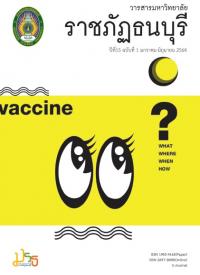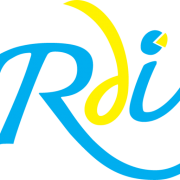อิทธิพลของวัฒนธรรมองค์การ การจัดการความรู้ที่ส่งผลต่อผลการปฏิบัติงานของพนักงานระดับปฏิบัติการอุตสาหกรรมอาหารแปรรูปในนิคมอุตสาหกรรมแหลมฉบัง
คำสำคัญ:
วัฒนธรรมองค์การ, การจัดการความรู้, ผลการปฏิบัติงานบทคัดย่อ
การวิจัยครั้งนี้มีวัตถุประสงค์เพื่อ 1) เพื่อศึกษาอิทธิพลของวัฒนธรรมองค์การที่ส่งผลต่อการจัดการความรู้ของพนักงานระดับปฏิบัติการอุตสาหกรรมอาหารแปรรูปในนิคมอุตสาหกรรมแหลมฉบัง จังหวัดชลบุรี 2) เพื่อศึกษาอิทธิพลของการจัดการความรู้ที่ส่งผลต่อผลการปฏิบัติงานของพนักงานระดับปฏิบัติการอุตสาหกรรมอาหารแปรรูปในนิคมอุตสาหกรรมแหลมฉบัง จังหวัดชลบุรี เครื่องมือที่ใช้เก็บข้อมูลคือแบบสอบถามผู้วิจัยสร้างขึ้นได้จากการศึกษาเอกสาร แนวคิด งานวิจัยที่เกี่ยวข้องโดยค่าความเชื่อมั่นของแบบสอบถามแต่ละด้านมีค่าสัมประสิทธิ์แอลฟา เท่ากับ 0.903, 0.956 และ 0.959 ตามลำดับ กลุ่มตัวอย่างคือพนักงานระดับปฏิบัติการอุตสาหกรรมอาหารแปรรูปในนิคมอุตสาหกรรมแหลมฉบัง จำนวน 294 คน ใช้การสุ่มตัวอย่างแบบชั้นภูมิอย่างเป็นสัดส่วนในการเก็บรวบรวมข้อมูลโดยแบ่งชั้นตามตามสัดส่วนของประชากร สถิติที่ใช้ในการวิเคราะห์ข้อมูล ได้แก่ ค่าร้อยละ ค่าเฉลี่ย ส่วนเบี่ยงเบนมาตรฐาน และการวิเคราะห์ถดถอยพหุคูณ ผลการศึกษาพบว่าวัฒนธรรมองค์การมีอิทธิพลเชิงบวกต่อการจัดการความรู้และการจัดการความรู้มีอิทธิพลเชิงบวกต่อผลการปฏิบัติงานของพนักงานระดับปฏิบัติการอุตสาหกรรมอาหารแปรรูปในนิคมอุตสาหกรรมแหลมฉบังอย่างมีนัยสำคัญทางสถิติที่ 0.01
Downloads
เอกสารอ้างอิง
กรมโรงงานและอุตสาหกรรม. (2562). ค้นหาข้อมูลโรงงาน. (Online). เข้าถึงได้ จาก https://bit.ly/33RSooI, 22 ตุลาคม 2562.
กัลยารัตน์ ธีระธนชัยกุล และภัทราทิพย์ ทรงบุญญา. (2558). การศึกษาปัจจัยเชิงสาเหตุที่มีอิทธิพลต่อ ผลการปฏิบัติงานของอาจารย์สถาบันอุดมศึกษาเอกชนในประเทศไทย. วารสารธุรกิจปริทัศน์. 7 (2), น. 115-136.
ชูศรี วงศ์รัตนะ. (2544). เทคนิคการใช้สถิติเพื่อการวิจัย. พิมพ์ครั้งที่ 8. กรุงเทพฯ: ศูนย์หนังสือจุฬาลงกรณ์ มหาวิทยาลัย.
ปราณี มีหาญพงษ์., สุจิตรา เหลืองอมรเลิศ., & ศากุล ช่างไม้. (1). โมเดลความสัมพันธ์เชิงสาเหตุของ ผลการดำเนินงานในหอ ผู้ป่วยโรงพยาบาลทั่วไปสังกัดกระทรวงสาธารณสุข A Causal Model of Patient Unit Performance in General Hospital under Ministry of Public Health. Journal of The Royal Thai Army Nurses, 16(1), น. 78-86. ค้นเมื่อ 15 กุมภาพันธ์ 2562, จาก https://he01.tci-thaijo.org/index.php/JRTAN/article/view/35819
ปาณิสรา จรัสวิญญู. (2561). ความสัมพันธ์เชิงสาเหตุของวัฒนธรรมองค์กรและการจัดการความรู้ที่ส่งผลต่อ ผลการดำเนินงานของธุรกิจ อุตสาหกรรมในจังหวัดกาแพงเพชร. วารสารวิทยาการจัดการสมัยใหม่. 11 (1), น. 163.
ผุสดี รุมาคม. (2551). การประเมินการปฏิบัติงาน. (พิมพ์ครั้งที่ 3). กรุงเทพมหานคร : มหาวิทยาลัย ธรรมศาสตร์.
Allameha, Zamani, Davoodia, (2010). “The Relationship between Organizational Culture and Knowledge Management”, Procedia Computer Science 3 (2011), pp. 1224 - 1236. ค้นเมื่อ 16 กุมภาพันธ์ 2562, จาก https://doi.org/10.1016/j.procs.2010.12.197.
Andrew H. Gold, Arvind Malhotra & Albert H. Segars (2001) "Knowledge Management: An Organizational Capabilities Perspective", Journal of Management Information Systems, 18: 1, pp. 185-214, ค้นเมื่อ 16 กุมภาพันธ์ 2562, จาก https://doi.org/10.1080/07421222.2001.11045669.
Argyris. (1999). On Organizational Learning. Oxford, UK: Blackwell Business. Azrain Nasyrah Mustapa & Rosli Mahmood.(2016). “Knowledge Management and Job Performance in the Public Sector: The Moderating Role of Organizational Commitment”. International Journal of Research in Business Studies and Management, Volume 3, Issue 7, July 2016, 28-36, ISSN 2394-5923 (Print) & ISSN 2394-5931 (Online).
Best, J. W., Kahn, J.V., (2014). Research in Education. Harlow: Pearson Education Limited.
Borman, W.C., & Motowidlo S.J. (1993). Expanding the criterion domain to include elements of contextual performance. San Francisco, CA: Jossey-Bass.
Cameron & Quinn, R.E. 2006. Diagnosing and Changing Organizational Culture. New York: The Jossey-Bass Business and Management Series.
Chidambaranathan, K., & Swarooprani, B. (2017). “Analyzing the relationship between organizational culture and knowledge management dimensions in higher education libraries”. Journal of Librarianship and Information Science, 49(1), pp. 57–68. ค้นเมื่อ 16 กุมภาพันธ์ 2563, จาก https://doi.org/10.1177/0961000615622678.
Denison, D. R. and Mishra, A. K. (1995). Toward a Theory of Organizational Culture and Effectiveness. Organization Science. 6 (2), pp. 204-223.
Fiedler, F.E. (1967). A Theory of Leadership Effectiveness. New York: McGraw - Hill. Fiol, C. M. & Lyles, M.A. Organizational Learning. Academy of Management Review 10,4 (1985): 803-813.
Kucza, T. (2001). Knowledge Management Process Model. Available from https://www.vtt.fi/inf/pdf/publications/2001/P455.pdf (2019, May 31).
Marquardt, M. J. (1996). “Building the Learning Organization: A Systems Approach to Quantum Improvement”. A Book Summary by Jyrki J.J. Kasvi (30735p). New York: McGraw-Hill. (pp. 220-242).
Organ, D. W. & M. Konovsky. (1989). “Cognitive versus Affective Determinants of Organizational Citizenship Behavior”. Joual of Applied Psychology.
Ugwu, C. I. (2019). “Mediation effect of knowledge management on the relationship between transformational leadership and job performance of librarians in university libraries in Nigeria”. Journal of Librarianship and Information Science, 51(4), pp. 1052–1066. ค้นเมื่อ18 มีนาคม 2563, จาก https://doi.org/10.1177/0961000618763715
Yeo-Jin Kang, Seok-Eun Kim & Gee-Weon Chang. (2008). “The Impact of Knowledge in South Korea. Intl Journal of Public Administration, 31:14, pp. 1548-1568, ค้นเมื่อ 19 มีนาคม 2562, จาก https://doi.org/10.1080/01900690802243607
ดาวน์โหลด
เผยแพร่แล้ว
รูปแบบการอ้างอิง
ฉบับ
ประเภทบทความ
สัญญาอนุญาต
ลิขสิทธิ์ (c) 2021 มหาวิทยาลัยราชภัฏธนบุรี

อนุญาตภายใต้เงื่อนไข Creative Commons Attribution-NonCommercial-NoDerivatives 4.0 International License.
บทความที่ได้รับการตีพิมพ์เป็นลิขสิทธิ์ของมหาวิทยาลัยราชภัฏธนบุรี
ข้อความที่ปรากฏในบทความแต่ละเรื่องในวารสารวิชาการเล่มนี้เป็นความคิดเห็นส่วนตัวของผู้เขียนแต่ละท่านไม่เกี่ยวข้องกับมหาวิทยาลัยราชภัฏธนบุรีและบุคลากรท่านอื่น ๆ ในมหาวิทยาลัยฯ แต่อย่างใด ความรับผิดชอบองค์ประกอบทั้งหมดของบทความแต่ละเรื่องเป็นของผู้เขียนแต่ละท่าน หากมีความผิดพลาดใด ๆ ผู้เขียนแต่ละท่านจะรับผิดชอบบทความของตนเองแต่ผู้เดียว







